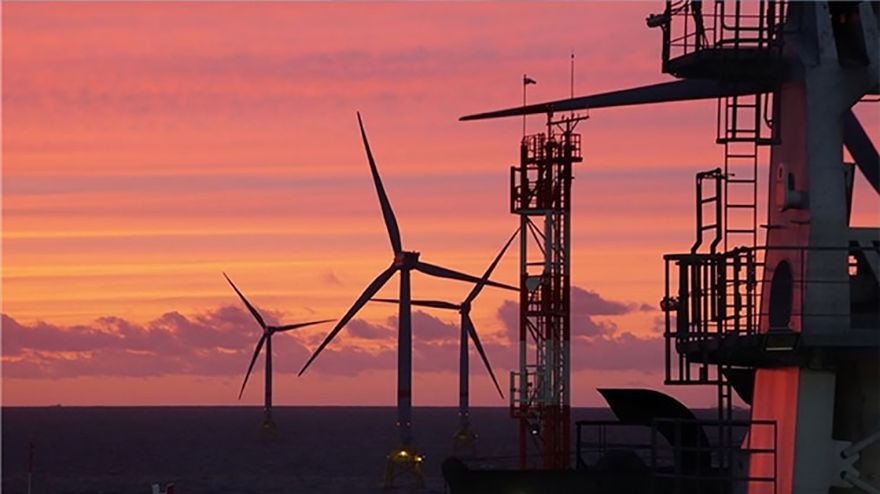 Baltic Eagle Wind Farm under construction. Photo: Iberdrola
Baltic Eagle Wind Farm under construction. Photo: IberdrolaDenmark-based
Vestas will pilot Sustainable Aviation Fuel (SAF) at the Baltic Eagle Wind Farm in the Baltic Sea during 2024. The pilot project entails Vestas technicians and the jack-up vessel crew using helicopters partly powered by SAF to transport themselves to and from the Baltic Eagle Wind Farm during the construction phase of 50 offshore wind turbines. SAF is produced from bio-waste materials such as used cooking oil or tallow and it can help reduce lifecycle greenhouse gas emissions associated with air travel, when compared to conventional jet fuel, a highly refined form of kerosene.
The pilot project will take place until September and helicopter service provider
HeliService, will use helicopters from
Leonardo S.p.a. flying on approximately 40% SAF provided by DCC and Shell Aviation Denmark A/S. A blend rate of 40% SAF is close to the highest possible blend rate permitted today and it is the first time that SAF-fuelled helicopters with such a high blend rate will be used during the construction phase of an offshore wind farm operation.
CO
2 savings of approximately 32% per flight are expected compared to using a standard helicopter powered by conventional jet fuel. Vestas will assess the impact of the SAF once the pilot project has been completed. The initiative is in line with Vestas’ sustainability strategy which includes becoming carbon neutral in its own operations by 2030 and reducing emissions in its supply chain by 45% per MWh generated. In relative terms, offshore wind projects experience higher CO
2-emissions from construction and service operations than onshore wind projects due to the need of vessels and helicopters, and Vestas needs to develop new solutions for offshore wind to become carbon neutral.
Sustainability strategyKieran Walsh, senior vice president and head of construction at Vestas Northern and Central Europe, said: “This is yet another initiative through which Vestas continues to implement its sustainability strategy. There is a significant need for more sustainable solutions during these wind farms’ construction and operation phases. The potential for using SAF in offshore operations is high and we are pleased to further exploit this potential.”
Sune Petersen, head of strategy and sustainability at DCC and Shell Aviation Denmark, added:
“The delivery of SAF to Roskilde Airport, which will serve as a helicopter base during Vestas’ pilot project, marks another milestone in our efforts to support the growing demand for alternatives to conventional jet fuel. It also marks an initial step towards introducing SAF into the fuel mix for helicopter services — not only in Denmark but also on a European scale.”
HeliService CEO Oliver Freiland, concluded: “Vestas’ decision to use SAF for the crew change flights demonstrates our joint commitment to operate more sustainably in terms of CO
2 reduction. HeliService’s Leonardo helicopters powered by engines from aerospace manufacturer Pratt & Whitney are designed to operate with SAF now.”